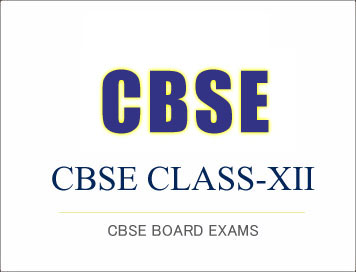(Download) CBSE Class-10 Marking Scheme (English Communicative) 2016
Disclaimer: This website is NOT associated with CBSE, for official website of CBSE visit - www.cbse.gov.in
(Download) CBSE Class-10 Marking Scheme (English Communicative) 2016
General Instructions:
Please note that the questions are numbered in continuation from 1 to 11.
(i) Marking of the entire script should be done by one examiner. All answers in
all the scripts issued to the examiner should be marked section wise.
(ii) In the marking scheme, a slash (/) indicates alternative answers; any one
such answer is counted as correct.
(iii) Brackets ( ) indicate optional information; the mark is awarded whether
the part in brackets is included or not.
(iv) If a student writes an answer which is not given in the marking scheme but
which is equally acceptable, full marks should be awarded.
(v) Students should not be penalized if they do not follow the order of the
sections / questions while answering.
(vi) In questions requiring word limit please note that no marks are to be
deducted for exceeding the word limit.
(vii) The Marking Scheme carries only suggested value points for the answers.
These are only guidelines and do not constitute the complete answers. The
students can have their own expression and if the expression is correct, marks
should be awarded accordingly.
(Strictly Confidential (For Internal and Restricted Use Only)
Question Paper Code 1/1/1
Section A (Reading) 20 Marks
Note : Section A tests the candidate’s ability in reading only. Therefore, no deductions are to be made for errors in spelling, grammar or punctuation. Marks should be awarded if the answer can be clearly understood.
Objective : This section evaluates the reading and comprehension skills of the students and their ability to infer and evaluate the given information.
1. COMPUTERS
MARKS–8
Objective: To identify the main points of a text
Marking: 8 marks – 1 mark for each correct answer
1.1 Sentence Completion
Answers :
a) invention of computers
b) solve mathematical problems / put thousands of unrelated facts in order
c) provide information on the best way to prevent traffic jams / used in industries / used in universities / carry out complicated work in all branches of learning (any one).
d) the process by which machines can be used to work for us
e) need detailed instructions from human beings to operate/ cannot make decisions of their own ( any one)
f) will enable people who do not share a common language to talk to each other without any difficulty / to read foreign publications (any one)
g) computers would be developed which would be small enough to carry in the pocket . / Ordinary people would be able to use these pocket computers to obtain valuable information . / Computers could be plugged in to a national network and be used like radios (any one)
h) can be informed about weather conditions / car drivers can be given alternative roads when there are traffic jams / make tiny translating machines ( any one)
